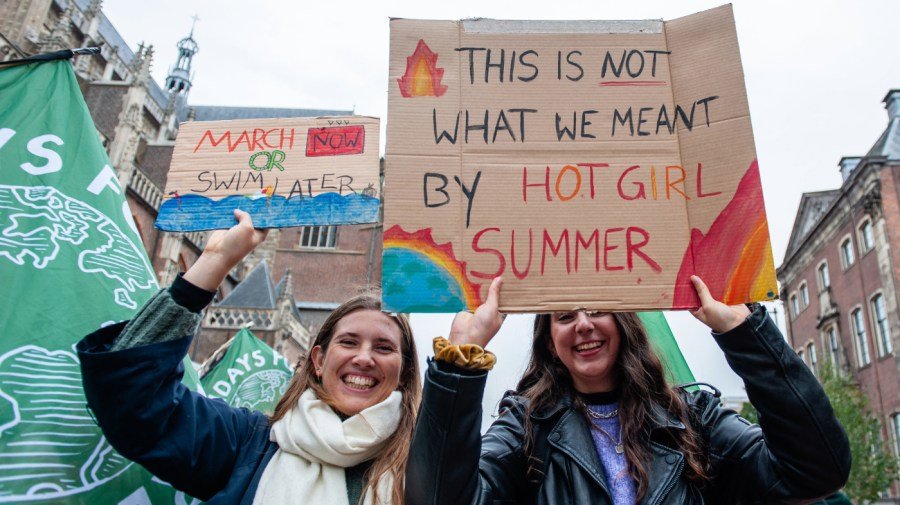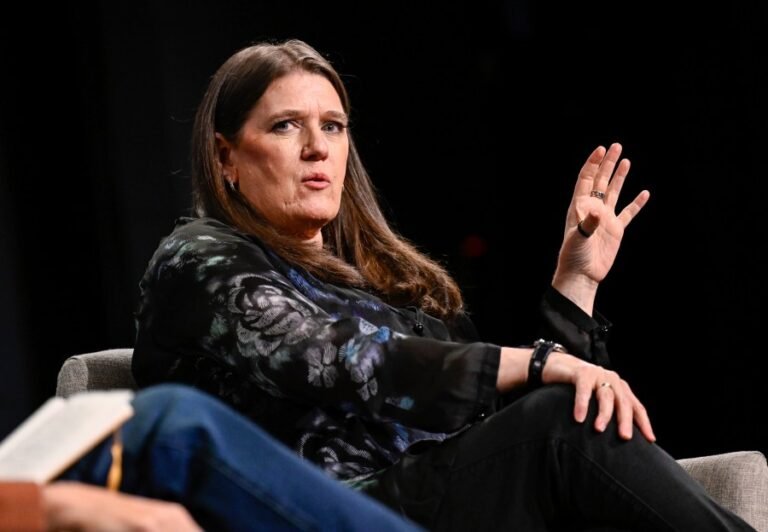
Hurricane season has just begun, whether the head of the Federal Emergency Management Agency knows it or not. And on a steadily warming planet, more numerous and more powerful storms are likely to wreak havoc in the months to come.
At the same time, critically important climate science is being defunded, experts within the government are being silenced or outright removed, and the “big beautiful bill” moving through Congress would take a large, devastating slice out of funding for research on climate change and solutions like renewable energy.
So, is this really the time to tell jokes about the climate crisis? As a scientist, I must look objectively at the evidence and say … yes. Bring on the funny.
I know it sounds counterintuitive, but hear me out. Like so many other serious and complex issues, climate change is a battle for hearts and minds, and the order of those words “hearts” and “minds” is no accident.
As research has shown time and again, if we don’t care about something, if it doesn’t connect with us on an emotional level, that subject matter doesn’t make it to the brain for further consideration. Like so much spam, it’s promptly deleted and forgotten before we’ve even opened and read the message.
So, it’s essential that any messaging about climate change intended to move the general public begins by eliciting an emotional response. In short: Start with the heart.
Data alone doesn’t do that. If we’re hoping to pluck emotional chords in an audience, we must avoid another trap into which many communicators fall.
Public awareness campaigns that press only the fear button (“Terrible things are going to happen!”) or the shame button (“And they will happen unless you act now!”) can be effective at first, but they tend to wear thin over time. Fear and shame are powerful motivators, but they, like the bare facts, aren’t the only way to get people off the dime.
As an alternative, consider humor’s potential for emotional connection. You can start with its long history. There’s a reason that kings’ courts included jesters, and that satirists from Moliere to Mark Twain to George Carlin have used humor to call attention to serious matters.
They understood that laughing about something doesn’t necessarily mean laughing at it or not taking it seriously. They also knew that humor can cut across ideologies and political leanings, which is particularly valuable when dealing with an issue as polarizing as climate change.
Everyone loves a good laugh. Laughing makes us feel good. In fact, there are numerous studies that show when we feel something, we tend to remember it. And when a thought has lodged in your brain, the chances for reflection and eventual action improve greatly.
Now, if you’re thinking, “We don’t want people to ‘feel good!’ We need them to be concerned! We need them to act now!” I get it. I’m with you. I’m simply suggesting that there are different paths towards that end, and perhaps the humorous approach is a road not taken often enough.
So, I’m putting my funny where my mouth is. Working alongside Emmy Award-winning comedian David Cross, I just took part in “Climate Science Translated,” a film that seeks to use humor to reach and mobilize more people.
If my work as a scientist has taught me anything, it’s that when one approach fails, you try another, and another, and another. Fighting climate change is an all-hands-on-deck situation, and right now, we have to face facts and admit that traditional approaches alone are not reaching enough hands.
Numbers numb, jargon jars and nobody ever marched on Washington because of a pie chart. It’s time to try something else.
Humor me.
Michael Oppenheimer is the Albert G. Milbank Professor of Geosciences and International Affairs and the High Meadows Environmental Institute at Princeton University.


